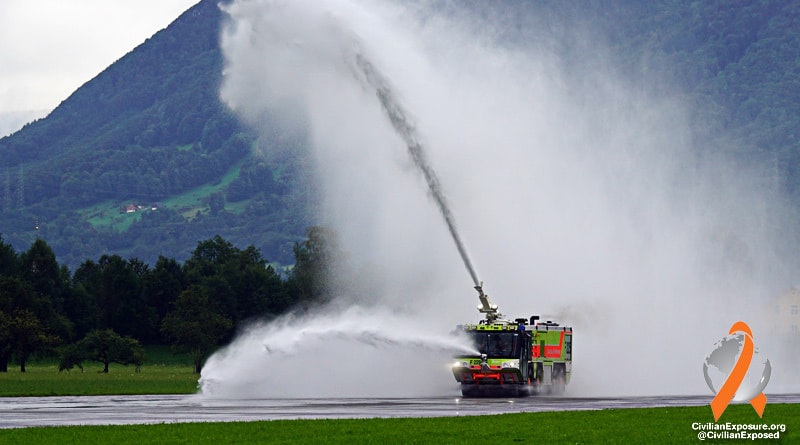
California lowers response level for PFOS & PFOA in drinking water but much more needs to be done
(February 12, 2020) — On February 6, 2020 the California State Water Resources Control Board lowered its “Response Level” to 10 parts per trillion (ppt) for PFOA and 40 ppt for PFOS.
Under a new California law (Assembly Bill 756), if a water system exceeds the response levels for these carcinogens, the system is required to take the water source out of service or provide public notification within 30 days of the confirmed detection. Previously, the response level was 70 ppt for the total concentration of the two contaminants combined.
Although the state is moving in the right direction with these legislative and regulatory responses to the public health crisis posed by this carcinogenic class of per- and poly fluoroalkyl substances, (PFAS), there’s a long way to go to protecting public health.
Defenders of this measure that regulates two varieties of PFAS say it is a modest, but useful first step to begin addressing the threat posed by more than 6,000 PFAS substances. For instance, water in Pleasanton and Burbank contains high levels of equally dangerous – yet unregulated Perfluorohexane Sulfonic Acid, (PFHxS).
Let’s flip the legislative etch-a-sketch upside down, give it a good shake, and start all over.
No One Should Be Drinking Water Containing PFAS
Because the Trump administration’s EPA is asleep at the switch, it’s imperative the Assembly takes the lead in protecting California’s public and the environment. The Assembly is behind the learning curve on this issue. Public health professionals and environmentalists in the US and internationally are calling PFAS one of the greatest threats to human health in all human history.
Here are several measures that ought to be part of a responsible legislative package:
- California must establish mandatory response levels (maximum contaminant levels – MCL’s) of 1 part per trillion, (ppt.) in groundwater and drinking water for all PFAS varieties combined.

The military is poisoning America’s groundwater (Photo: Civilian Exposure)
- California must immediately ban the use of all fire-fighting foams containing PFAS. A great deal of the PFAS contamination of our drinking water is caused by the use of these foams that are allowed to contaminate groundwater and surface water. Capable foam substitutes known as fluorine-free foams, or 3F are in regular use throughout European airports. Members of the European Parliament and other legislators throughout the continent shake their heads at the power of the US chemical industry and point to the irresponsibility of the US Congress and state legislators regarding this matter.
- California must immediately test every source of water for all municipal water systems throughout the state to determine the levels of multiple PFAS chemicals. The results for all the chemicals should be made readily available to the public.
- Likewise, the state must test private groundwater wells – especially those closest to the burn pits of municipal airports, military bases, and fire training areas. The groundwater plumes may travel up to a foot a day. That’s 365 feet in a year— 14,600 feet in 40 years; That’s almost 3 miles — and some areas may have groundwater that travels more rapidly. Legislation calling for the state to pick up the tab for private well testing within a mile of these sites would be prudent – and that should be expanded if results show the presence of the cancer-causing agents in the well water.
- The state must immediately publish a public warning to those who drink well water within 3 miles of the sites identified above. The emergency health warning should specifically target women who are pregnant or may become pregnant.
- We must establish a California PFAS infrastructure grant program for municipal water providers. These funds would be used primarily to establish Granular Activated Carbon (GAC) filter systems, or other suitable fixes to filter out the carcinogens so that tap water may be provided under the newly established MCL’s.
- California must immediately ban the incineration of PFAS. The Air Force admits that the foam it uses is engineered to resist super-hot temperatures and is extraordinarily difficult to burn. There’s not enough science out there to justify burning PFAS.
- The state must immediately order the testing of sewage sludge to determine the levels of PFAS and it must establish MCL’s for such materials and prohibit the contaminated materials from being spread on farm fields that may contaminate food grown for human consumption.
California must immediately test all surface waters throughout the state to determine the levels of PFAS, and the state must develop an MCL for all tidal as well as non-tidal waters statewide.
Posted in accordance with US Code Title 17, Section 107 for concommercial, educational purposes.